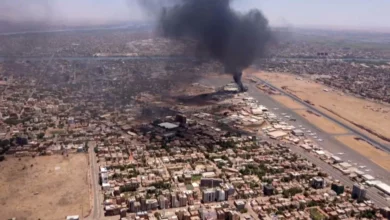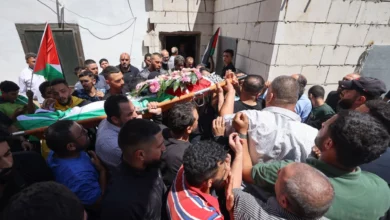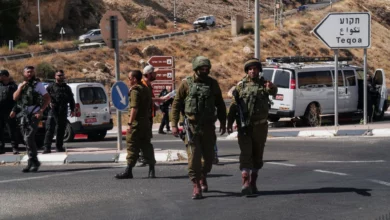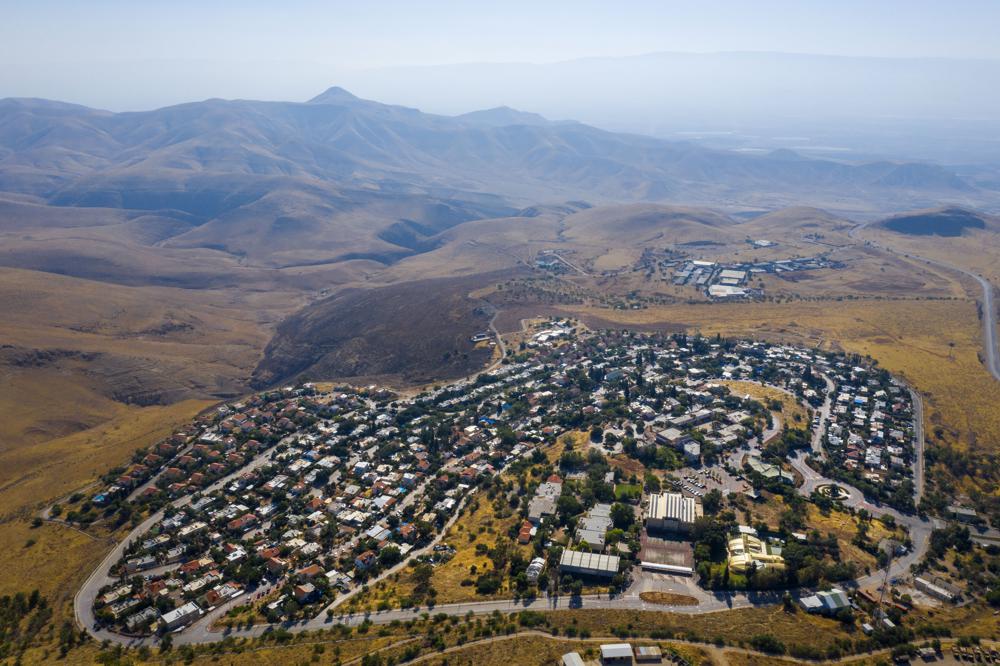
The haunting bangs of gunshots have ceased, police and ambulance sirens are silent, and the smell of tear gas no longer permeates the air. You can step out on to a balcony without covering your nose from the stench of gas, vinegar and smoke. Your eyes will no longer sting. Ferocious amber flames from burning buildings have been put out. Rubble from rocks raining back and forth between police and protestors has been cleared away, and the angry chants of protestors — “Filthy government, you sons of bitches,” “Down with military rule” and “Fuck you Tantawi” — have faded.
Noubar Street was one of the main scenes of clashes last week between riot police and protestors in downtown Cairo. It is one of the roads that lead to the Interior Ministry, the beating heart of vengeful security forces. Violence was triggered after the killing of 74 Ahly football fans in Port Said. Many accused the police and military of failing to intervene to stop the massacre, so protestors marched onto the arteries leading to the ministry in a confrontation waiting to happen.
Police have since built walls across downtown in attempt to shield the already fortified ministry from intrusion. It lives in its own gated community. The wall on Noubar Street is made up of about 50 large grey concrete slabs that are stapled together at the back with metal. The staples are apparently an attempt to make sure the structure stands, unlike its counterpart in Mohamed Mahmoud Street, which was brought down during the clashes by the determination of young men using no machinery but their bare hands.
Walking through the ministry’s back yard you come across a colorful bunch of its friends.
Thuggish-looking men, physically stocky, sit in a circle sipping tea and talking. Men in suits stand around casually exchanging conversation while observing their surroundings, like hawks waiting to pounce on vulnerably prey: usually foreigners and anyone looking like they belong to those of the other side, the chanters. You keep your head down hoping no one will notice you’re one of them.
Bulging eyes peak out of army tanks to follow your footsteps. Black-clad police officers looking bored sit on sidewalks eating nuts or rest in their multi-purpose green trucks that serve as modes of transport, weapons stocks and campervans. An opening shows half a dozen young men cramped inside sleeping under blankets with disposable food containers piling up at their sides. Other officers, batons in hand, are standing guard behind walls and barbed wire — though for what it is unclear, as protestors have gone home now.
There’s also the nut seller and bagel man wheeling their carts, serving officers, hoping to make a day’s wage. Street sweepers, brooms in hand, keep the place clean. Children cycle around playfully and young boys stop to chat by policemen.
The kiosk man says he no longer stocks newspapers because they cannot be delivered, the route is blocked by the wall. Apart from the land grab and obvious intrusion into space and rights, life’s little pleasantries get blocked out by walls: the direct route to your local fruit-seller and cafe, to meet friends and connect with the people you identify with. The route to Tahrir ("Liberation") Square now involves a compulsory tour past pro-regime structures: the ministry’s side entrance, army tanks that line the street and bear stickers saying "the people and army are one hand” with a picture of a smiling solider carrying a baby, a sardonic-looking Justice Ministry, and numerous barbed wire entanglements that guard the entrances around parliament.
Last week, there were stories of civilians being arrested by the police and flats being raided downtown in a search for activists and cameras. Entering Noubar Street has became an airport-like experience of having to state your purpose of entry, identify your nationality and have your baggage checked. You breathe a sigh of relief once in, but remain a lonely stranger in your own neighborhood, outnumbered by black shadows and weapons. What if someone decides to pick on you? What if they surround you and attack? No one would come to the rescue; they’re not on your side. It is ironic how insecure you can be made to feel by those employed in the security services.
Looking down from a balcony you see crawling black ants that have made Noubar Street their colony. If only you had a spray to clear them all away. The officers have moved in and children play around them. A father walks with a little girl, pink ribbons in her hair, holding his hand. He greets an army officer.
It’s a different scene on the other side of the wall. There’s free-flowing traffic and residents have appropriated the space by the wall for a parking spot and garage. There are no army tanks or green trucks, no black soldiers or weapons. That side of the wall weeps from memories of a recent past, the injured and the dead: it represents the struggle for justice. The other side is strapped with metal, its secrets sealed between the cracks. It is oppressed.




